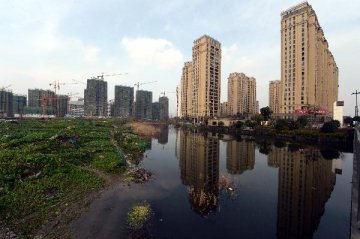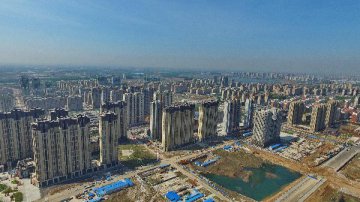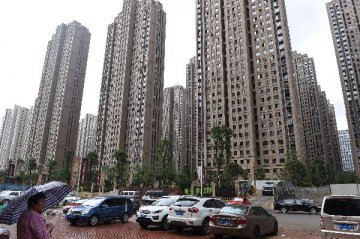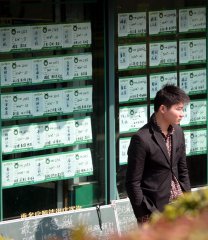
11.36 million square meters of newly-established commercialized houses in 50 typical cities were sold in the first half of July, a decrease of 2 percent from the first half of June and 20 percent year on year, according to a report recently released by E-House China R&D Institute.
When compared with sales in the first half of June, house sales in 30 among the 50 cities dropped, and sales in Anqing, Langfang and Huizhou cities saw the highest decline with 41 percent, 37 percent and 37 percent respectively. On a year-on-year basis, 33 cities suffered decrease in house sales, and sales in Beijing, Fuzhou and Langfang lost by 74 percent, 69 percent and 66 percent from a year earlier respectively, the top three highest percentages.
Lai Qin, a researcher from E-House, analyzed that the restriction policy in real estate market has exerted positive influence on the real estate market and transaction gets stabilized gradually. In terms of previous data since 2016, current market transaction stays at medium and lower level.
As for different cities, in the first 15 days of July, the areas of new commercialized houses sold in 50 tier-1, tier-2 and tier-3 cities grew by -8 percent, 8 percent and -13 percent respectively when compared with that in previous month and dropped by 56 percent, 12 percent and 18 percent year on year respectively. “The year-on-year decline in the three tiers of cities showed that the previous regulation policies have taken effect, which will guide China’s real estate market to a steady development stage.” In the opinion of Lai, “the market in tier-1 cities takes the lead in making adjustment, cooling down the market. House transaction in tier-2 cities surged slightly in July. Real estate market in tier-3 cities boomed in the last several months, but the transaction in tier-3 cities moved down a little in the month.”
Noticeably, the area of houses traded in Beijing fell by 74 percent from a year earlier, ahead of all cities across the country; and it plummeted by 36 percent in Beijing when compared with that in the first half of June, with the decline ranking the fifth among other cities. It is learnt that the cooling real estate market in Beijing is a result of restriction over approval on preselling certificate of high-priced houses and the shrinking demand for home purchase.
According to data from market research institute of www.bacic5i5j.com, sales of newly-built commercialized houses and second-hand houses plunged greatly in Beijing since July. 888 deals of new houses in the city were registered in real estate authorities in the first 20 days of July, down by 28.5 percent when compared with that in the same period of June and down by 66.9 percent from a year earlier. Besides, 4,651 deals of second-hand houses were registered, down by 20.4 percent when compared with that in the same period of last month and 66.5 percent year on year.
Hu Jinghui, vice president of leading real estate agency 5i5j, remarked that year-on-year growth in prices of newly-built commercialized houses in 15 tier-1 cities and tier-2 cities edged down in July, according to house sales data of 70 large and medium cities in June released by the National Bureau of Statistics. Meanwhile, average year-on-year growth in prices new commercialized houses and second-hand houses in tier-1 cities fell for nine consecutive months.
Hu viewed that as different regulation policies specific to respective cities are launched, regulation on real estate market will be effective in the future. The real estate market in various places will develop as expected, and the ideal target that housing prices in tier-1 and tier-2 cities are under control and housing inventories in tier-3 and tier-4 cities are cut can be achieved.
Lai analyzed that transaction in real estate market dropped amid stability in the first half of this month due to the regulation policy, which cooled down the previously hot market. “Such market situation is predicted to continue, and house sales in China’s real estate market will keep the trend with slight decline in July. At the same time, as polarization is quite obvious in different cities, market transaction in some cities with relaxed policies will keep flourishing for a period,” said Lai.
Translated by Vanessa Chen
























Latest comments